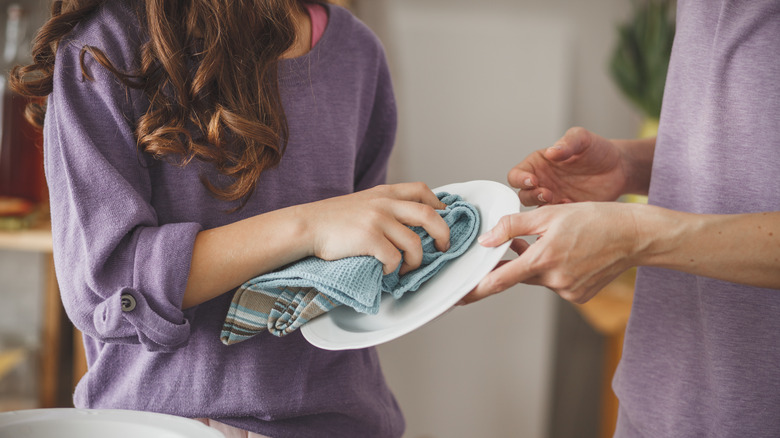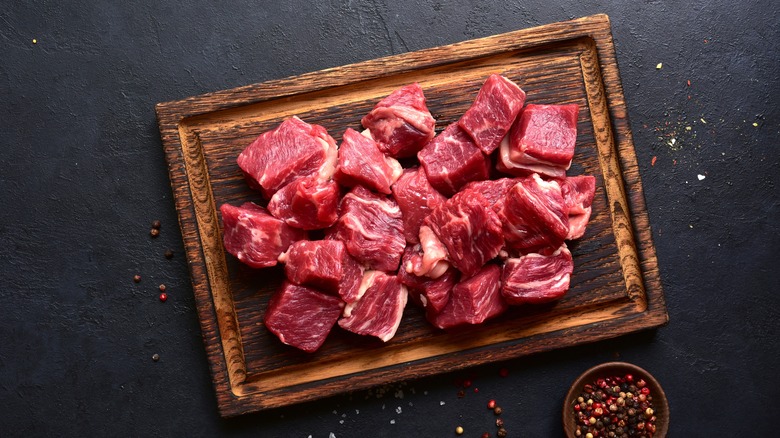Why Your Dish Towels Should Never Touch Certain Kitchen Messes
Whether you're cleaning up water rings, wiping down your glass cooktop, or drying pots and pans, your kitchen towels do it all. While using dish towels for several purposes in the kitchen can be convenient, it's important to keep food safety rules at the forefront of your mind. Doing so will avoid cross-contamination and other kitchen issues that could make you and your family sick.
Research shows that nearly half of the towels in standard kitchens are teeming with bacteria. E. coli bacteria — a type of bacteria commonly found in the digestive tracts of animals that's known for causing gastrointestinal infections — is commonly found on both kitchen towels and dish sponges. This doesn't mean that you can't use dish towels in your kitchen — in fact, you can! However, you need to be careful about what you use them for, and how often you toss your kitchen towels in the laundry.
Kitchen towels should stay far away from certain messes, especially those involving raw meat. While it's normal for chicken, beef, and other meats to leave residue behind on kitchen counters, the way you clean up the mess matters. Only use a dish towel for these types of messes if you're going to toss it into the laundry (using hot water) right away. Otherwise, stick with paper towels and an antibacterial spray (be sure to rinse with water afterward if you're cleaning a surface that has direct contact with food.
More must-know tips to prevent cross-contamination in your kitchen
Understanding common food safety mistakes can help you slow the spread of bacteria and cross-contamination in your home kitchen. If you use dish towels, be sure to toss them in the wash daily. This means that it can be helpful to have an arsenal of kitchen towels at your disposal, and storing them correctly can make it easier to always have a fresh set on hand.
Despite what old wives' tales may tell you, it's also important to stop rinsing raw chicken and other poultry before cooking. Doing so actually spreads bacteria, as the washing process can splatter your countertops, sink, utensils, and hands with potentially harmful pathogens. Simply scrub your hands for at least 20 seconds after handling raw meat, and you'll be good to go, no chicken-rinsing necessary.
Failing to properly clean cutting boards is another major food safety hazard that can easily be avoided. Washing your cutting boards after cutting raw meat is super important to stop the spread of germs from one ingredient to the next. After cutting raw meat, seafood, or poultry, sanitize your cutting board by rinsing with hot water, disinfecting with chlorine bleach or another sanitizing solution, then rinsing with clean water.

